The Arab Spring's foreign spoilers
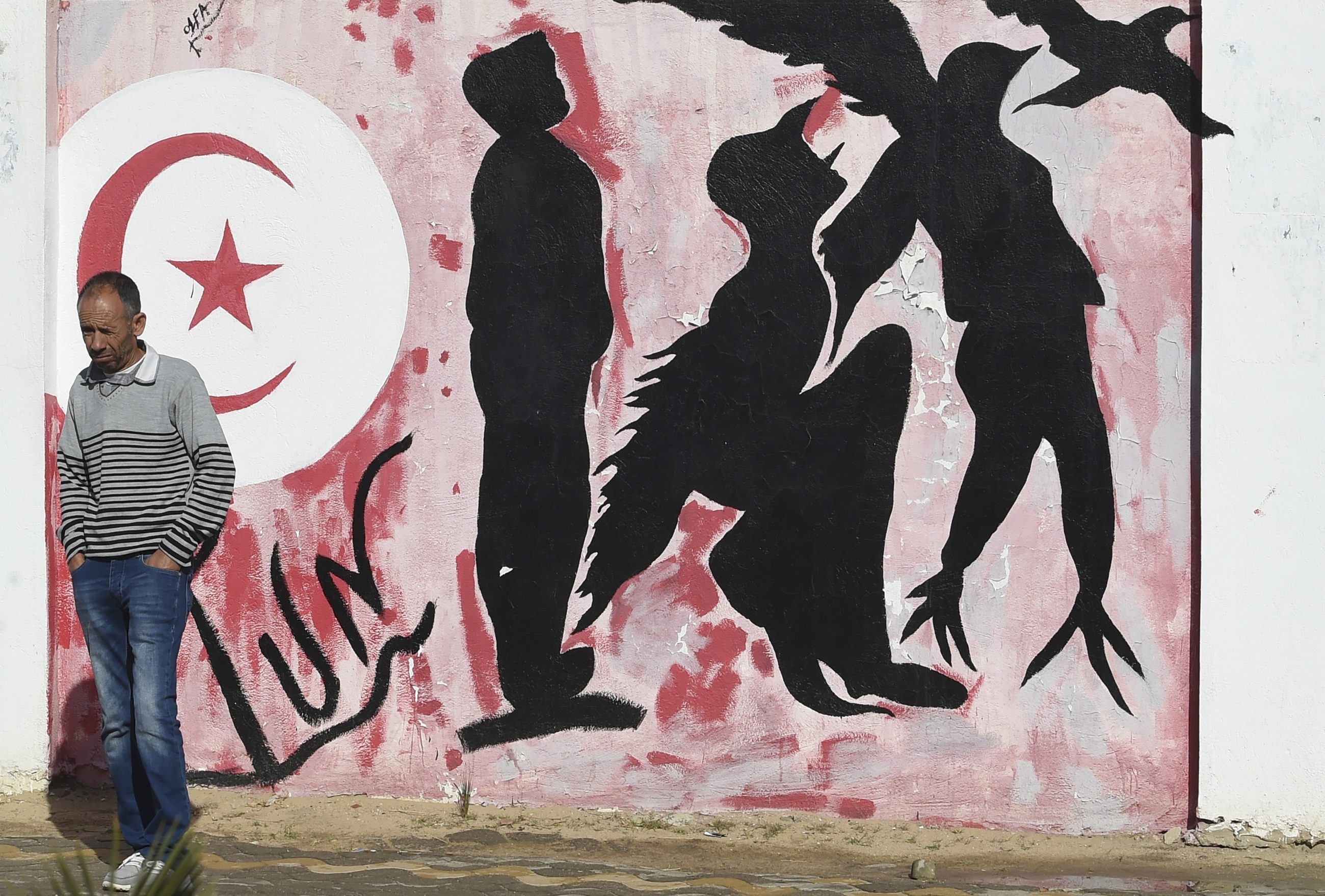
Much analysis has been written to mark the 10th anniversary of the beginning of the Arab Spring.
Understandably, many have focused on the domestic reasons why, with the exception of Tunisia, hopes of democratic transformation were dashed in most states that witnessed protests, ushering in instead instability, renewed dictatorship and civil war. Yet, the external reasons for the Arab Spring's failures should not be dismissed or marginalised.
From the very beginning, foreign powers, whether regional or international, interacted with domestic forces and played a major role in determining the fate of the popular uprisings that swept the region. While the Arab Spring's first popular uprising, in Tunisia, took regional and international powers by surprise, they were far less passive about the copycat protests that erupted across the Arab world in its wake.
The United States, at the time led by Barack Obama's administration, which didn't want to be caught on "the wrong side of history," was a prominent player. In Egypt, it was only once Obama had turned on his ally, President Hosni Mubarak, that the protests translated into regime change. It was Obama's message to the Egyptian military, via Defence Secretary Robert Gates, that Mubarak must resign that prompted his removal.
Similarly, Obama's decision to back British and French plans for Nato to intervene militarily under the pretext of preventing Muammar Gaddafi from crushing protesters ultimately led to the fall and death of the Libyan dictator. Yet, for all these seemingly positive moves, the US did as much to contribute to the uprisings' failure.
Geopolitical priorities
On 14 March 2011, when the Bahraini government crushed its nascent protest movement with the help of Saudi Arabia and the United Arab Emirates, Washington remained silent. With Bahrain home to the US Fifth Fleet, and the Obama administration keen to retain Riyadh and Abu Dhabi's backing for the Libya campaign, the White House indicated that sometimes geopolitical priorities trumped its support for democratic protesters.
When the Muslim Brotherhood in Egypt was toppled in a 2013 coup, the US did nothing to defend the elected government, eventually endorsing the new dictatorship established by Sisi
Likewise, when the Muslim Brotherhood in Egypt was toppled in a 2013 coup, again backed by Saudi Arabia and the UAE, the US did nothing to defend the elected government, eventually endorsing the new dictatorship established by Abdel Fattah el-Sisi.
Some have argued that US activity, or inactivity, also worsened the fates of uprisings in Syria and Libya. In Syria, Obama called for President Bashar al-Assad to stand down when he brutally crushed protesters, and eventually sent weapons and money to the armed rebels that tried to overthrow him.
But Obama's efforts were half-hearted, and he didn't follow up with direct intervention, even after Assad crossed his "red line" of using chemical weapons. This all helped to fuel a civil war by aiding the rebels enough to fight, but not enough to win. In Libya, the US' relative retreat after Gaddafi was defeated, offering very limited institutional and state-building support to the new democratic government, contributed to its collapse into civil conflict.
Yet, the US was far from the only injurious international power. Russia and China repeatedly intervened at the UN Security Council to veto numerous attempts to punish Assad for his repression in Syria. Moscow was determined to prevent the collapse of the Baath regime in Damascus, providing weapons and money to shore up Assad's depleted forces before intervening directly in 2015 with its air force and special forces to turn the tide of the war.
Since then, President Vladimir Putin's ambitions in the Middle East have widened, but again he has primarily been supporting autocrats, such as the rebel Libyan commander Khalifa Haftar, who seeks to overthrow the weak UN-backed government.
Regional spoilers
Regional players were also far from benevolent. Long before Putin's intervention in Syria, it was Iran that led the charge to keep Assad in power. As soon as protests broke out, Tehran sought to undermine them by offering Assad money and weapons, fighters and commanders from the Islamic Revolutionary Guard and Hezbollah, and Shia militia from Iraq, Afghanistan and Pakistan to supplement Assad's fading military.
While Syria was Iran's primary focus, it also supported the Houthis in Yemen. And in Iraq, US-Iran tensions have undermined the peaceful protest movement there.
Despite being fierce rivals, Riyadh was even more reactionary than Tehran. While it helped broker the exit of Yemeni dictator Ali Abdullah Saleh in 2012 and backed anti-Assad forces in Syria, Saudi Arabia broadly sought to stifle the Arab uprisings.
Fearing the 2011 protests might come home, King Abdullah spent lavishly in the early months: not only $37bn on welfare measures domestically, but a further $21bn in neighbouring Bahrain, Oman and Jordan to help their embattled rulers buy off dissidents.
Similarly, Saudi Arabia bankrolled the Egyptian military's 2013 coup, alongside the UAE, contributing to the collapse of the democratic experiment there. Moreover, in sending in its own troops to Bahrain in 2011 and Yemen in 2015, it showed a willingness to go beyond its traditional chequebook diplomacy to ensure the Arab uprisings turned in its favour. Riyadh thus greatly contributed to the ongoing civil war in Yemen and the return of autocracy to Bahrain and Egypt.
Ambiguous intervention
Qatar and Turkey were two other regional powers that have impacted the Arab uprisings' outcomes in an ambiguous way.
The governments that intervened to try to shape the Arab uprisings to their advantage continue to interfere in the politics of the many states scarred by that experience
On the one hand, Qatar was one of the early supporters of the Arab uprisings. Al-Jazeera channel played a key role in reporting on protests and providing a platform to inspire activists across the Arab world. Doha urged Nato to intervene in Libya to save protesters from Gaddafi, backed the anti-Assad rebels in Syria and gave generous grants to the newly elected regimes in Tripoli and Cairo.
In Egypt, Doha's unconditional backing for the Muslim Brotherhood government may have contributed to its uncompromising stance, increasing the military's appetite for a coup.
Turkey's involvement was also mixed. When the Arab Spring began, Turkey was often heralded as a potential model for the new democracies expected to emerge, particularly the mildly Islamist ruling AK Party. Though slower to endorse the protesters than its ally Qatar, Ankara eventually became a prominent supporter of the Muslim Brotherhood government in Egypt, several rebel groups in Syria, and the new government in Tripoli.
Yet, as with Qatar, this did little ultimately to prevent the return of dictatorship in Cairo and contributed to the weakness and disunity of the Syrian opposition. Moreover, as Turkey itself became more authoritarian following the 2013 Gezi Park protests and a failed coup by the military in 2016, Ankara's commitment to democratic forces abroad also waned.
Moreover, while it continues to defend some regions of Syria, notably Idlib, from Assad attacks, it arguably contributed to Syrian regime's overall victory in the conflict by making deals with Russia and Iran that allowed Damascus to retake several key rebel areas.
A negative impact
These foreign governments, therefore, all contributed to the failure of the 2011 uprisings in most cases.
While their motives differed and they prioritised different arenas, all arguably had a net negative impact. Moreover, they are not yet done. The governments that intervened to try to shape the Arab uprisings to their advantage continue to interfere in the politics of the many states scarred by that experience, whether Syria, Yemen, Libya or elsewhere.
With new uprisings emerging and activists successfully toppling governments in Sudan and Algeria, and attempting to in Lebanon and Iraq, foreign spoilers have circled once more to try to influence the outcome.
While these activists can learn much from the domestic mistakes that derailed the revolutionaries of 2011, they would do well to also consider how they might mitigate against the damaging foreign interference that greatly contributed to the Arab Spring's failures.
The views expressed in this article belong to the author and do not necessarily reflect the editorial policy of Middle East Eye.
Middle East Eye propose une couverture et une analyse indépendantes et incomparables du Moyen-Orient, de l’Afrique du Nord et d’autres régions du monde. Pour en savoir plus sur la reprise de ce contenu et les frais qui s’appliquent, veuillez remplir ce formulaire [en anglais]. Pour en savoir plus sur MEE, cliquez ici [en anglais].


